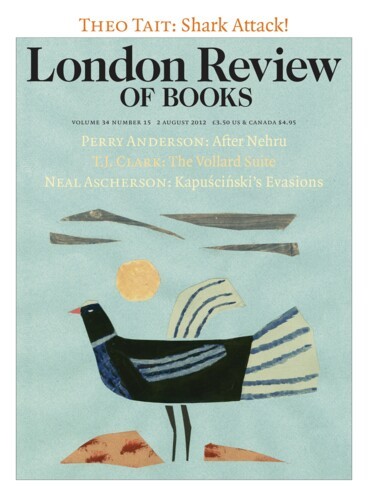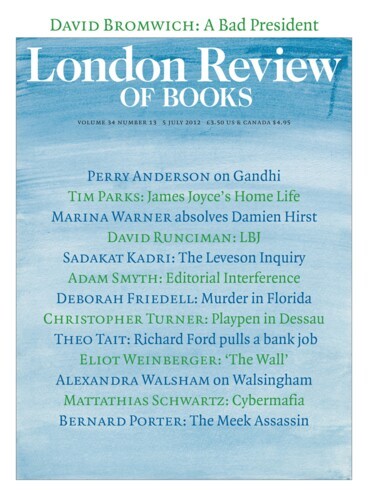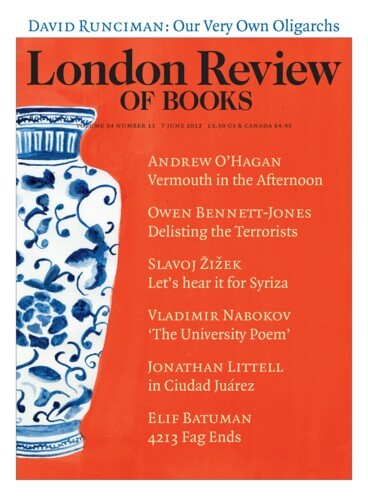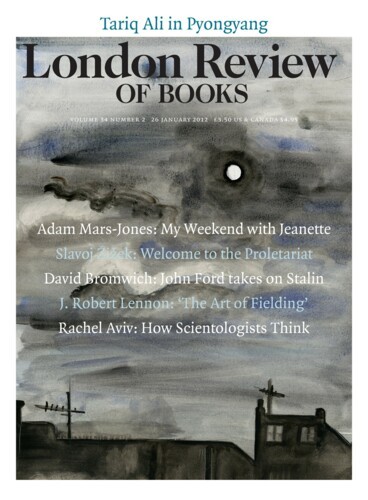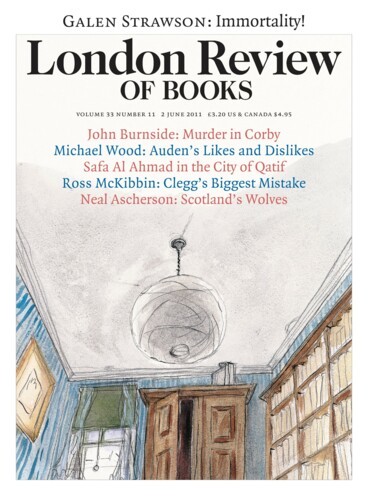Don’t wear yum-yum yellow: Shark Attack!
Theo Tait, 2 August 2012
‘Many scientists don’t like to talk about shark sex,’ Juliet Eilperin writes in her entertaining study of sharks and their world. ‘They worry it will only reinforce the popular perception that these creatures are brutish and unrelenting.’ In as far as we understand the subject – only a few species have been observed mating – the business is ‘very rough’. Larger male sharks have to bite or trap the females to keep them around during courtship; marine biologists can tell when a female has been mating because her skin will be raw or bleeding.
